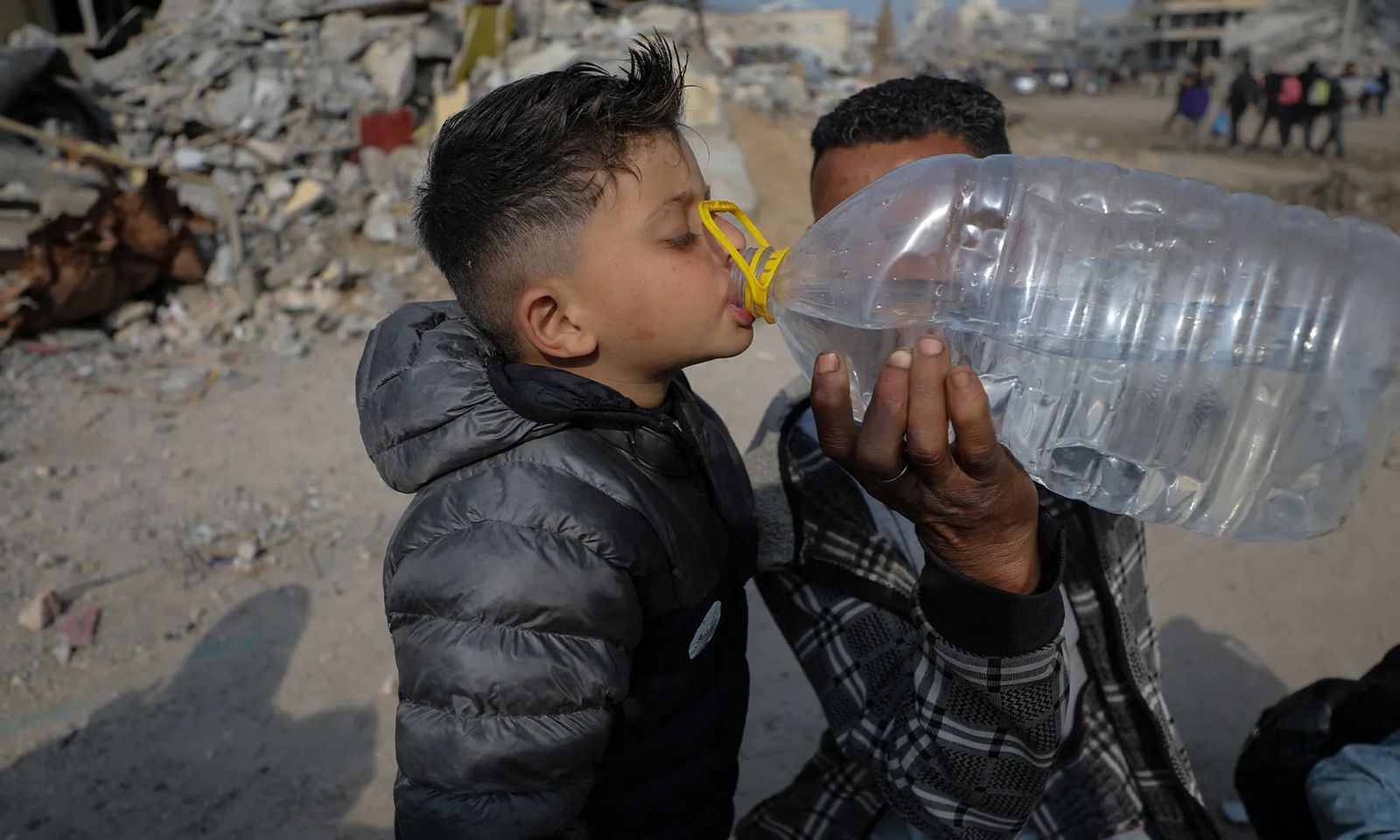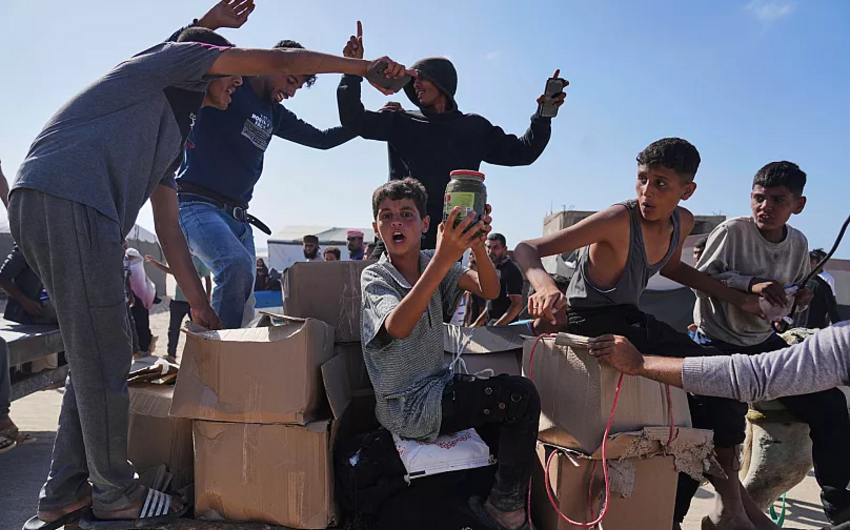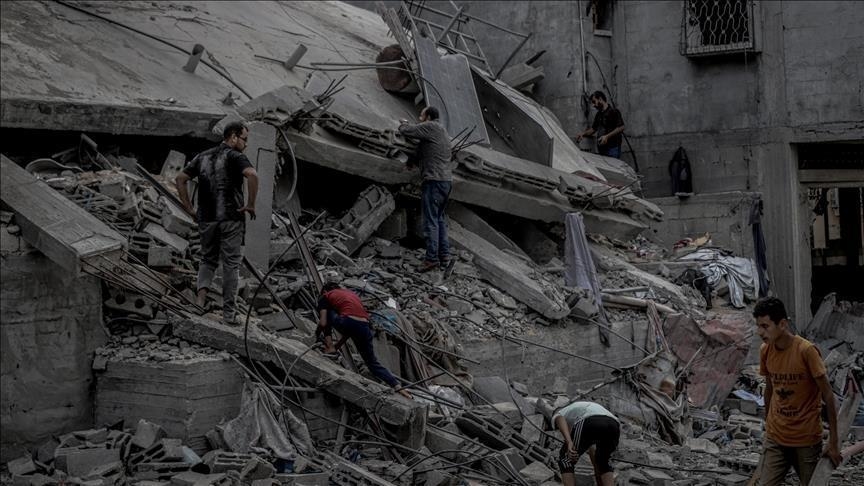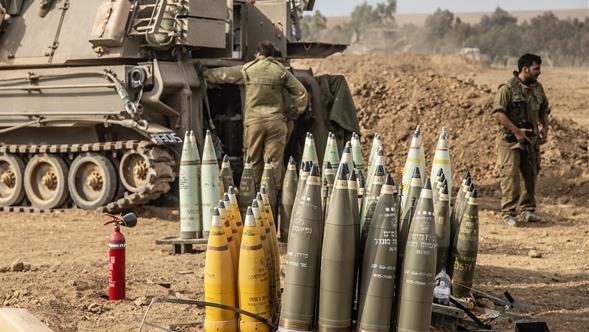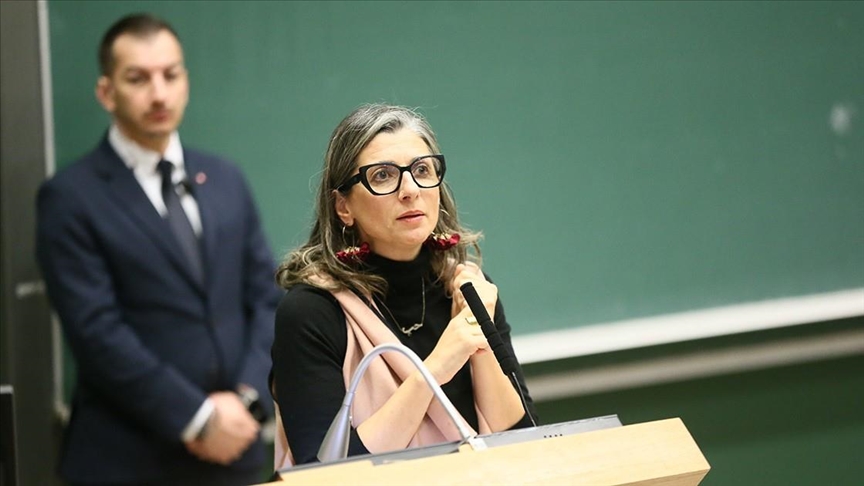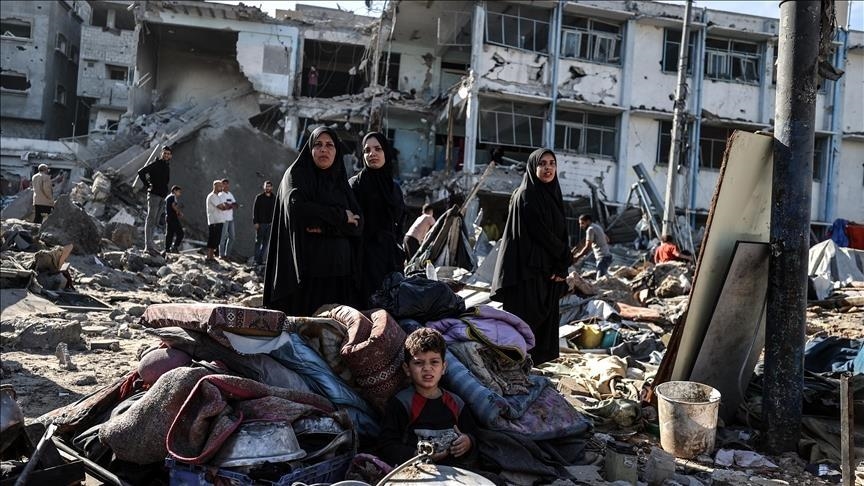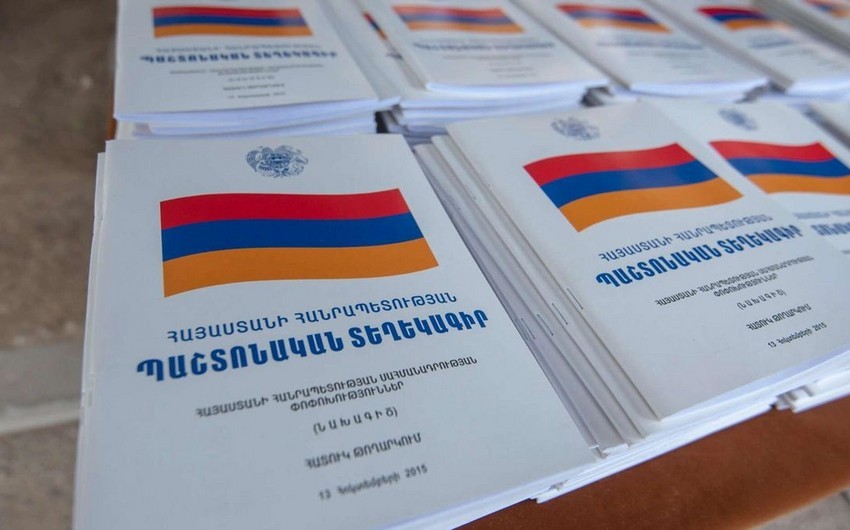As the Israel-Palestine conflict continues to intensify, the residents of Gaza are now facing a new, life-threatening crisis. Recent Israeli airstrikes have targeted one of the only functioning water desalination plants in Gaza, leaving millions of Palestinians without access to clean drinking water. This plant had been one of the few remaining sources of potable water in the region, and its destruction has exacerbated the already dire humanitarian situation.
The bombing of the desalination facility is part of a broader Israeli military operation in Gaza that has seen airstrikes on various infrastructure targets, including civilian buildings, hospitals, and power plants. The destruction of the water plant, however, may prove to be one of the most devastating attacks in terms of its long-term consequences.
With the destruction of this vital infrastructure, many residents of Gaza fear that they may die from thirst before they are killed by the ongoing bombings. "Now we fear dying from thirst before being killed by the bombs," said a local resident, expressing the deep sense of helplessness and anxiety that has taken hold of the population.
Water scarcity has been a long-standing issue in Gaza, which has long struggled with a lack of natural fresh water sources. The region is heavily reliant on desalination plants, wells, and external aid to provide clean drinking water to its population. According to humanitarian organizations, around 90% of Gaza’s water is undrinkable, and only a few functional desalination plants were able to provide safe drinking water to the majority of the population.
The plant that was destroyed in the recent airstrikes was critical in providing access to clean water for hundreds of thousands of people. It had been operating at full capacity in an effort to address the severe water crisis in the region, and its destruction leaves a major gap in the ability to supply drinking water to Gaza’s residents.
The loss of clean water has serious implications for the health of the population. Access to clean water is essential not only for drinking but also for sanitation and hygiene. Without it, the risk of disease outbreaks increases dramatically, especially in densely populated areas like Gaza. Already overburdened hospitals and clinics, which are struggling to treat casualties from the ongoing conflict, will now also be forced to deal with the potential public health crisis caused by the lack of clean water.
International aid organizations have condemned the attack on Gaza’s water supply, calling it an egregious violation of international law. "The destruction of vital civilian infrastructure, especially water supplies, is a clear violation of humanitarian principles," said a spokesperson for the International Committee of the Red Cross. "We urge all parties to the conflict to take immediate steps to ensure that civilians have access to basic services like water."
In addition to the health risks posed by the water shortage, the destruction of the desalination plant also threatens to destabilize Gaza’s fragile public services even further. The region already faces severe shortages of food, medical supplies, and electricity, and now, with the loss of access to clean water, the situation has become even more precarious.
While some international aid organizations have been able to provide emergency supplies, these efforts are severely limited by the ongoing violence and restrictions on the movement of goods and people into and out of Gaza. The destruction of the desalination plant has made it even harder to deliver aid, and without a significant change in the course of the conflict, the situation is expected to worsen in the coming days and weeks.
This latest attack on Gaza’s water infrastructure highlights the broader issue of resource control in conflict zones. Access to basic necessities such as water is often used as a weapon in ongoing military struggles, and civilians are the ones who suffer the most. As the conflict continues, the residents of Gaza are left in an increasingly dire situation, facing the dual threat of death by violence and death by thirst.
International calls for a ceasefire and for the protection of civilians have grown louder, but as of now, there is no sign that the fighting will abate. With Gaza’s water resources increasingly depleted, the survival of its population depends not only on the immediate cessation of violence but also on the restoration of basic services and the provision of aid.
The situation in Gaza is a stark reminder of the devastating consequences that war and conflict have on basic human rights, particularly access to clean water and essential services. For the residents of Gaza, the need for international support and intervention has never been more urgent.
Fatima Shukurova // EDnews

